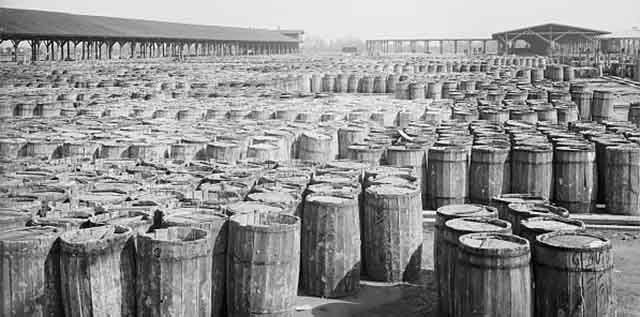
Naval Stores
We are all familiar with the image of the old wooden warship, charging into the crashing waves of the high seas with its giant timbers and towering masts creaking and groaning, yet holding strong through the roughest of waters.
But have you ever stopped to wonder why these ships, made entirely of wood, did not leak and sink? Was every single wooden joint so tight that not even a drop of water could seep through?
Just like the mighty timbers that made the ships, the secret to keeping wooden warships dry also came from deep in the forests of old.
Pine trees produce a very thick, gummy sap. When this sap is heated it produces a substance called pitch--also known as pine tar or resin. Ship-makers used this thick compound to caulk in between the lumber that made up the hulls of ships. Pine pitch is so resilient and so thick that it effectively sealed the seams of the wooden ships to the point of being waterproof.
As colonists settled in the American South, they saw not only an abundant lumber supply in the dense pine forests that surrounded them, but also a wealth of pine-pitch waiting to be harvested. An entire industry was built on the sap of those forests, and the stands of Southern pine that were used for their sap became known as "naval stores." Barrels full of pine pitch were sold in Southern stock yards by the thousands.
Today, the world of Naval Stores has all but vanished, and reclaimed pine hardwood serves as one of the only echoes of a once prosperous industry.